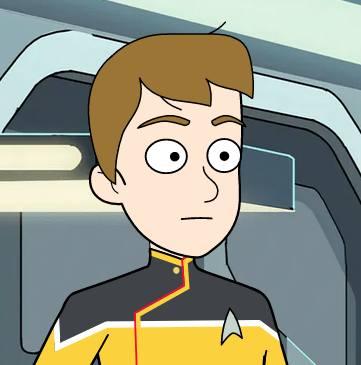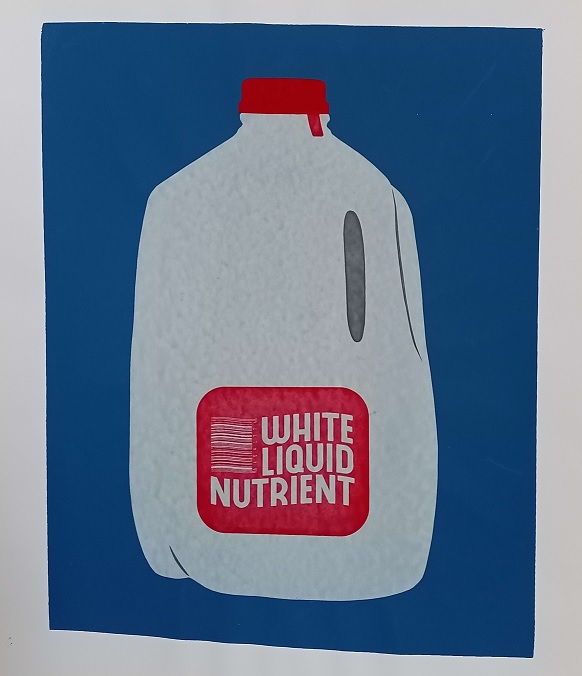“The only difference between programming and games is that games have win conditions.”
I mean, this is cringe AF.
Kotlin ‘built by communism’? Because the founders of JB are Russian? Is that it?
Swift is ‘greed’ how? It’s open source since 2015 or so; & available on Linux. Apple’s graphical toolkits are ‘closed down’; & obviously restrict users’ freedoms; though not sure how that implies ‘monopoly’. ‘Monopoly’ would be trying to dominate all toolkits, not have one’s own.
Vague word associations are cool, I guess.
lighten up man
I think a lot of jokes are better if they have a kernel of truth in them
removed by mod
Yes, Tetris was a real example of this. I think it was the only videogame the USSR ever
producedexported.Edit: Actually I think I remembered that wrong. They had a healthy domestic arcade industry. It was just the only one they bothered to export.
Alexey Pajitnov. He worked for the government, and made Tetris in his spare time across several late nights at his shared workstation. It was a hobby project made out of boredom, not something designed for any ulterior purpose.
He was a fan of those toy puzzle games where you have to fit shaped tiled pieces into a rectangular grid, so he decided to program a version of that for his workstation. When he succeeded with that, he found it rather boring to play with. So he spiced it up by making pieces fall from the top (to add challenge) and made them clear away when you completed rows (so the game would last longer). That’s pretty much it. Dead simple. Everything else from the iconic tile colors to the music were added by licensees later down the line.
Is this an ad?
The blog post itself is, but these Toggl comics are high quality original content
Are they the oatmeal guy?
No, the name is in the comic - Mart Virkus. I like his stuff. https://arcaderage.co/
Swift is open source, I don’t get the “lesson in corporate greed” angle.
Don’t worry, the artist probably doesn’t, either.
Haskell isn’t really that hard to learn. It’s just changing the paradigm, that takes a mind shift for the first two weeks, maybe a month.
I don’t play games that much to make such comparisons, though.
Haskell isn’t really that hard to learn
A monad is a monoid in the category of endofunctors
a little category theory never hurt anyone :)
Gorillions of set theorists are dead, and you have the gall to tell me that it never hurt anyone?
the set theorists were already in pain. category theory freed them from their suffering
i agree. haskell is worth learning because its cool, and the skills/concepts are transferrable, not because the language is in demand
So like dungeons and Dragons then
It inspired much, but whoever knows all the rules?
I just lost the game
I’m the version I learned, others mentioning the game grants you 15 minutes of immunity.
It seems like a critical rule, because you can actually win (only when someone else loses) if you haven’t thought about it for over a year.
Appropriately enough, there’s a Java port of Doom.
And also a line printer port of Doom.
I don’t know if I’m joking, because that list leaves out everything relying on the Java port, beacuse there’s too many. So… Maybe in the printer, and maybe not.
I don’t get Dart. It should have been a CS:GO clone
Games don’t always have win conditions…
The only winning move is not to play.
Games by their literal definition have win conditions.
One without win conditions is just a virtual toy. Like sim city.
I wrote a paper on this when studying games technology at university. It’s actually a really interesting area of study.
We also briefly discussed this in Games Master, if only to discover how wide and diverse the range of perspectives are. I feel it misrepresents the subject to talk about a “literal definition”, and to explicitly include “win conditions”. Because there are multiple attempts of a definition, and many do not include win conditions.
https://en.wikipedia.org/wiki/Game
One such example definition:
“To play a game is to engage in activity directed toward bringing about a specific state of affairs, using only means permitted by specific rules, where the means permitted by the rules are more limited in scope than they would be in the absence of the rules, and where the sole reason for accepting such limitation is to make possible such activity.” (Bernard Suits)[14]
You seem to refer to Chris Crawford’s definition, which is in part:
If no goals are associated with a plaything, it is a toy. (Crawford notes that by his definition, (a) a toy can become a game element if the player makes up rules, and (b) The Sims and SimCity are toys, not games.) If it has goals, a plaything is a challenge.
Explicitly calling SimCity “not a game” is purely academic talk, detached from reality. For everyone else, SimCity is clearly a game. If you want to buy it, you look for games, not toys. I feel definitions are questionable which define something to be not what everybody thinks it is.
Was Minecraft not a game until it included “The End”? I loved playing Minecraft, but I rarely cared about The End, even after it was included. When a player cannot tell the difference between a version of a game which includes a win condition, and a version which does not, how can the existence of that condition be a decisive factor?
If we widen the scope to include any game, not just video games, we can also have a look at popular children’s games like https://en.wikipedia.org/wiki/Word_Association. My theater group loves to play win-free games as a warmup practice.
From my point of view, win conditions are a common characteristic of games, but not necessary or defining. Coming up with a short definition which captures all games and excludes all non-games is surprisingly hard.
Imo definitions are important even if people aren’t aware of them.
I did say it’s an interesting area of study. So I was referring to the academic side and specific definitions.
The other definitions are way too wide imo and easily include many things that clearly aren’t games.
Win free games are basically just constrained play I feel.
Again Minecraft isn’t a game technically. Beating the ender dragon doesn’t end the game. If it did then it would better fit the definition of a game imo. It’s a sandbox or digital Lego.
What about MMORPGs? Where do they fit in this classification? I’m genuinely curious.
There’s predefined goals and rules.
It has win and lose conditions, for example failing a raid.
It can technically be completed even if that takes an insane amount of time and effort. You can therefore fail to complete it.
So you could argue it is a game quite easily. You could also argue it’s a set of distinct games within a framework.
But things get a lot more messy with digital games compared to classic games.
Your point seems obvious - except that Minecraft still had no win condition in beta and was already well on it’s way too becoming the most popular video game of all time.
Makes it feel like the accepted definition of “game” is changing.
I think the term “virtual toy” applies really well for Minecraft.
Like Lego you can set goals for yourself but there aren’t strict win or lose conditions.
But the diversity of what’s possible with video games certainly muddies the waters compared to classic games.
For those using Imagus, make sure to click the link still. The entire comic doesn’t get blown up from the thumbnail.
https://toggl.com/blog/wp-content/uploads/2020/08/toggl-programming-languages-as-games_1.jpg
Perl made me laugh more that I want to admint…









